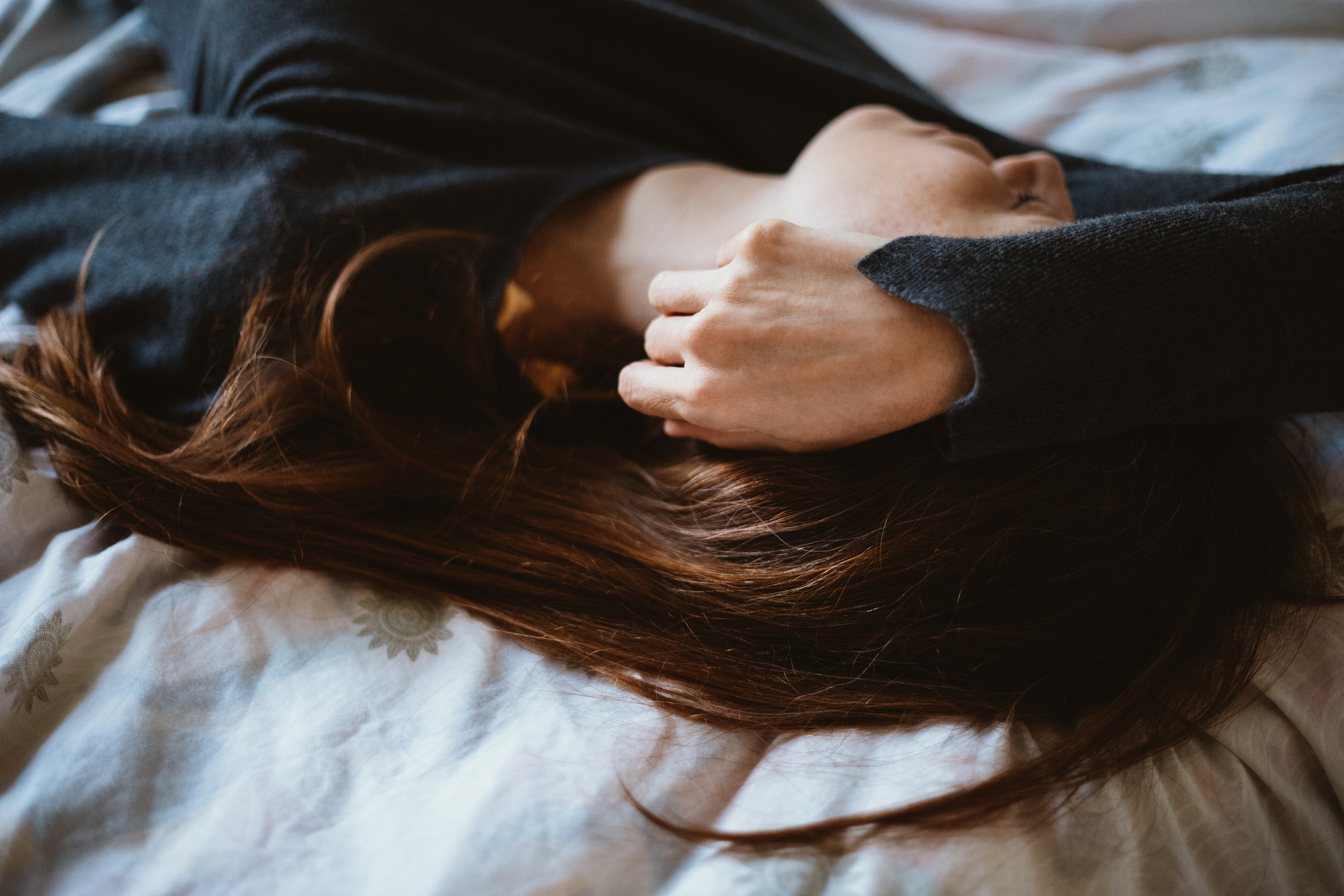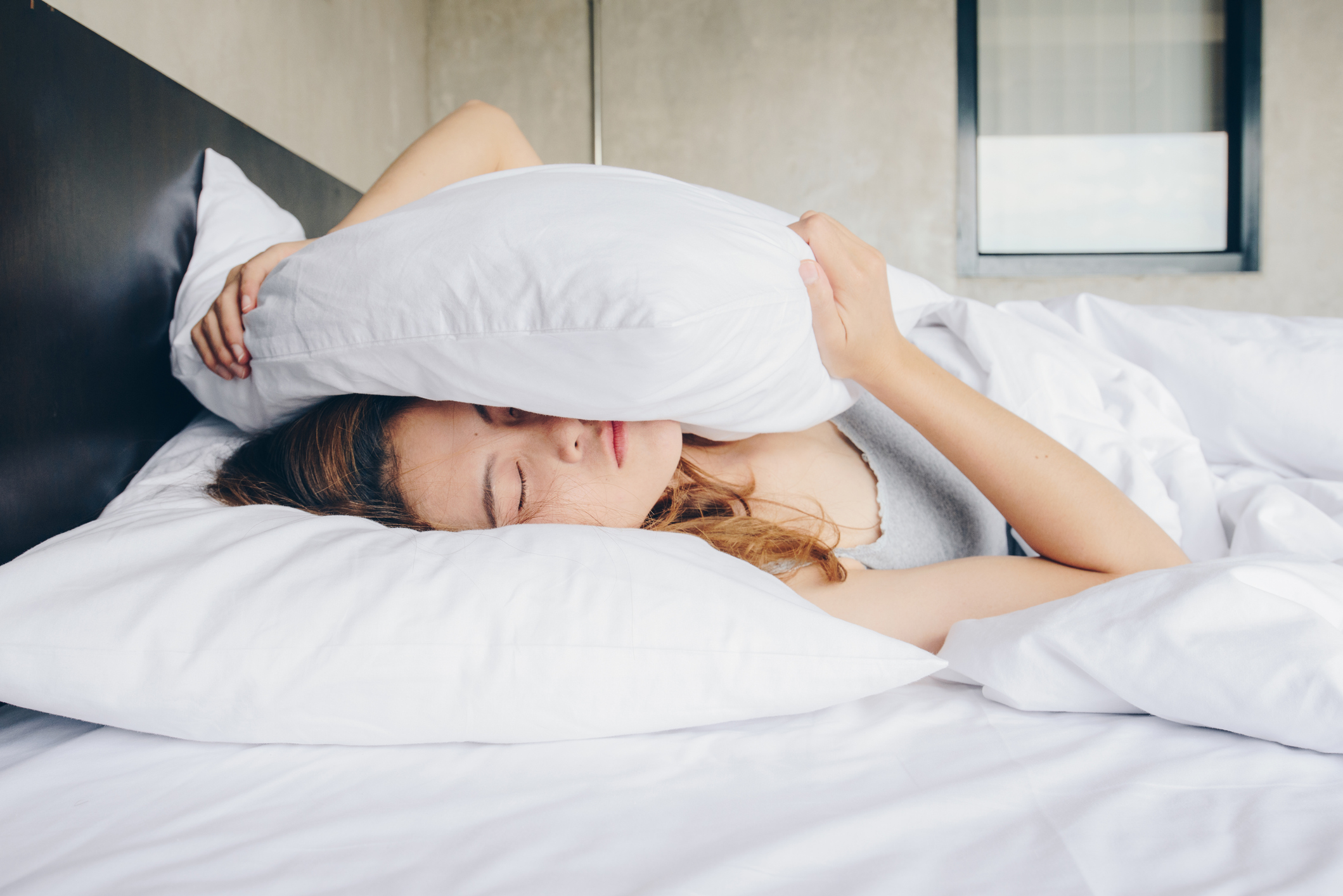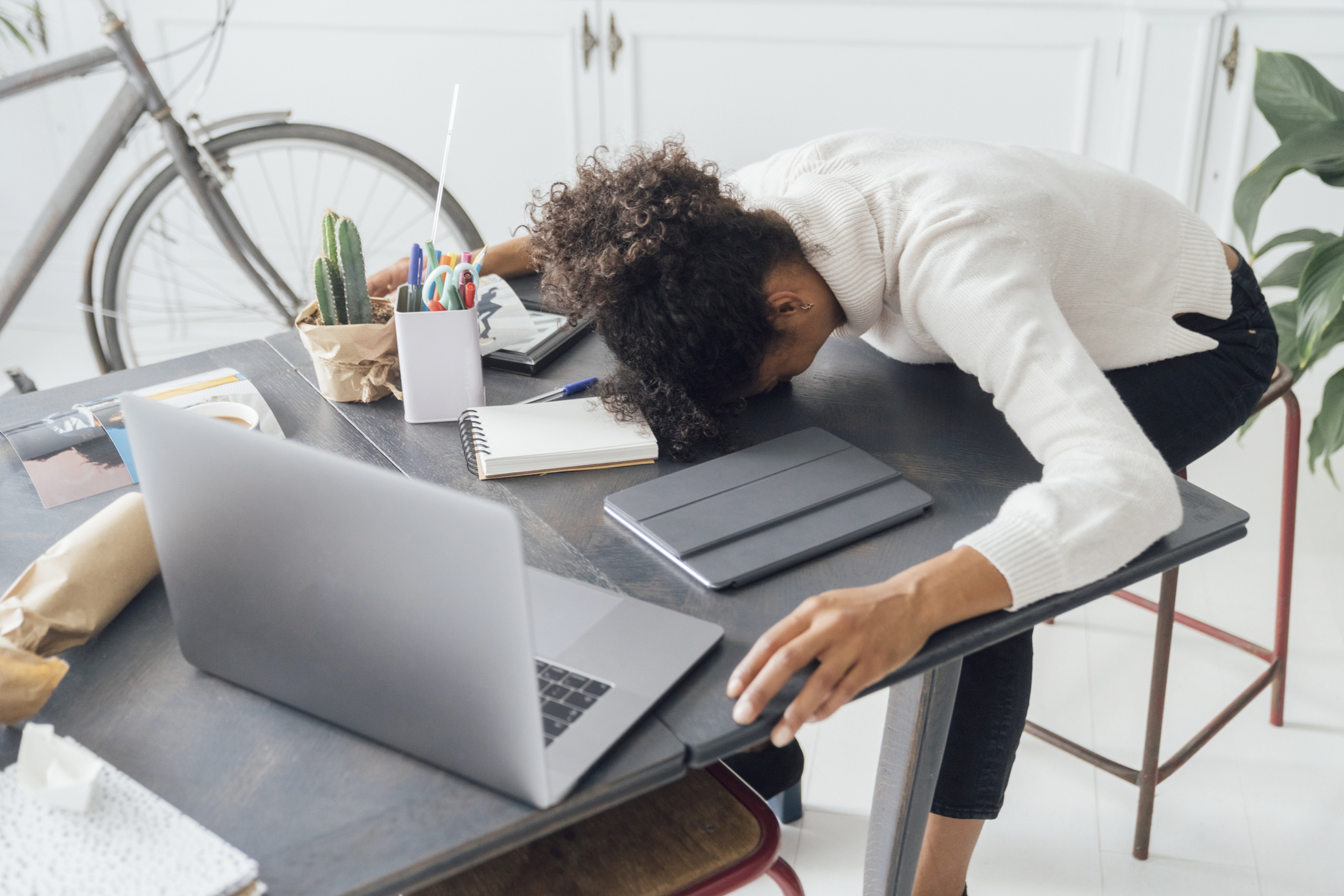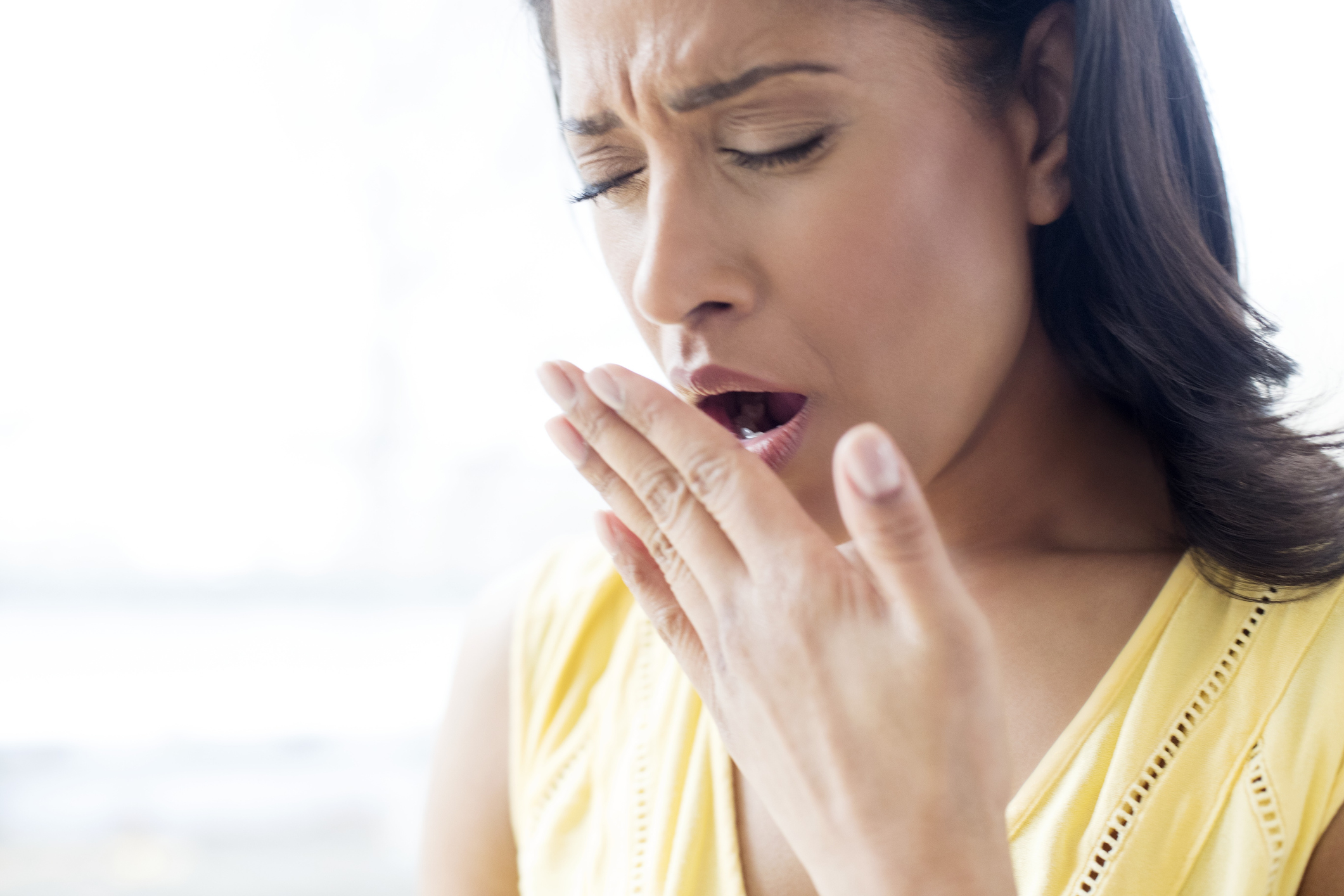Insomnia treatment: 10 simple tricks to help you create the perfect sleep-friendly environment
Did you know there are two totally different types of insomnia?

Did you know there are two totally different types of insomnia?
Did you know? This week marks World Sleep Day and - perhaps unsurprisingly - searches for 'insomnia treatment' are up 50%, with people searching for remedies to help when they're struggling to sleep more frequently, too.
As many as 40% of you complain that you aren't getting enough shut-eye and sleep deprivation appears to be more prominent than ever, with thousands of people currently suffering from insomnia in the UK.
If that includes you, keep reading for our expert-led guide to insomnia, plus a break-down of their go-to insomnia treatment. Don't miss our guides to the best mattresses, weighted blankets, sleep masks, and beauty sleep products, while you're here.
Insomnia: your guide to the sleep disorder
"You are not alone in suffering from insomnia", explains psychologist doctor Helen Nightingale of CBT wellbeing. "Tens of thousands are fighting the same night-time battle," she continues.
Just like there are different types of vaginal infection, STD and UTI, there are actually different kinds of insomnia, too.
1. Early insomnia
This insomnia occurs if you're experiencing a stressful problem in your life. "Worry can cause your sleep to be affected night after night," she explains.
Celebrity news, beauty, fashion advice, and fascinating features, delivered straight to your inbox!
The good news? This usually passes and, when it does, things will return to normal. If it doesn't, you may be experiencing chronic insomnia. Read our guides to chronic stress and totally free self care ideas, if you think this may be affecting you.
2. Chronic insomnia
Chronic insomnia refers to the type of insomnia where you experience ongoing sleep issues for years. "You're normally constantly tired," explains the psychologist.

Insomnia causes: so, what's triggering the sleepless nights?
There are a whole host of things that can cause sleepless nights and it'll differ from person-to-person. One cause? Your brain. There are a couple of parts that control your sleep and further regulate it, explains Nightingale.
"You've got the cortex, which is the thinking part of the brain, and the subcortical, the more animal part of the brain responsible for keeping us protected while we sleep."
Think about it this way - as a Mum, you'll immediately wake up if you hear your child crying, right? Those without children, you'll always wake up if you need the toilet.
But why? "When the cortex shuts down, it transfers control to the limbic system, which is more concerned with instinct and mood."
"The cortex needs to go quiet so that the subcortical can work and you can get a good nights sleep. People who have been good sleepers can start having problems when their brain actively focusses on unimportant negative thoughts."
Similarly, anxiety is one of the worst culprits when it comes to keeping people awake.
"If you're worrying during the right, you'll disrupt your sleep," Nightingale explains. have worries during this time.
Lastly, did you know? There are actually chemicals that can change our sleep patterns, most notably alcohol and certain medications. "Sleep is a complex issue - make sure you're putting your best step forward to create a friendly sleep environment is key."
Simply put, creating a sleep friendly environment that works for you is the simplest way insomnia treatment. More on how below.

Insomnia treatment: 10 simple steps to try
According to leading sleep therapist and neuroscientist Hope Bastine, the environment that you sleep in, the temperature of your room and the specific conditions you snooze off in are key. Her favourite insomnia treatment? The following:
1. Avoid alcohol
As above, seriously simple but we bet you'll notice the difference in your zzz's.
2. Have a wind-down period
That is, allow yourself some time between eating and watching TV. "Allow yourself an hour before bedtime with no phone, no TV, no tablets, etc," advises Bastine.
3. Make your bedroom sleep-friendly
According to Bastine, every room in our home has a specific purpose. As we walk into it we begin associating specific activities with the space. So it’s important to create an environment that promotes the desired activity – in this case sleep and rest.
She says: “Bedroom décor is key to promoting a good night’s rest. Research has found that red is exciting while blue promotes competence. Another study showed that reds and yellows increased anxiety compared to blues and greens. In general, softer, muted colours like grey, pink and purples are neutral and promote tranquility.”
Thinks like a sunrise alarm clock, weighted blanket, and sleep mask will all help.
4. Ensure your pillows are sleep-promoting
A comfortable bed and the right supporting pillow are by far the most important items to challenge the sleep thief, Bastine shares.
"The National Sleep Foundation recommends keeping your head in neutral alignment’– the way you would when standing up with good posture" she explains.
Silk pillowcases are also better for your skin and hair, if you're acne or brittle-hair prone.
5. Get a good mattress
FYI, the quality and comfort of your bed is also key to good slumber. Who knew insomnia treatment would include a trip to Ikea?
"A 2009 study in the Chiropractic Medical Journal found that new, medium-firm beds increased sleep quality, reduced back discomfort, and moderated stress-related symptoms that interfered with restful sleep," explains the expert.
Our guide to the very best mattresses on the market will help. Don't say we aren't good to you..

6. Regulate the temperature
The average room temperature is around 20 degrees; however, maintaining a bedroom temperature of 18 degrees or lower will mimic the body’s hibernation state and help maintain a calmer state of mind, explains Bastine.
"Air circulation also moderates temperature, and having plants in the bedroom provides a good supply of oxygen. Some favourites include:
- Aloe Vera
- Lavender
- Jasmine
- Snake plant.
7. Opt for sensible pj's
The pjs will not only help you feel cute, but are key to managing optimum temperature and air circulation for good sleep.
Bastine explains: “Choose natural fabrics such as cotton, bamboo, silk or satin, because they absorb excess moisture, therefore regulating body temperature."
Pajamas? We've rounded up our favourites, from Desmond & Dempsey to M&S.
8. Avoid blue light before bedtime
In other words, read up on the effects of blue light and notice how it impacts your sleep, and invest in a good sunrise alarm clock.
"Modern light sources - particularly fluorescent lights, laptops, and cellphone screens - contain a high level of blue light that disrupts melatonin production and throws off our natural circadian rhythms," explains Bastine. This, in turn, often keeps us awake when we should be sleeping.
Many sleep specialists suggest that this widespread exposure to blue light long after the sun has set is a major contributor to the modern epidemic of insomnia. The American Medical Association says ‘this effect can be minimised by using dim, warm lighting in the nighttime bedroom environment.'
9. Start a sleep ritual
Formulaic rituals such as sleep rituals, are extremely effective in producing the desired outcome when they are repeated at a specific time and have a certain number stages. So why not establish your own sleep ritual?
"This should begin one to two hours before bedtime but some practices need to be considered well before then," explains Bastine. Try the following:
- Avoid stimulants such as caffeine from lunchtime - they stay prominent in your system for at least six hours (if you are sensitive, twelve hours).
- Complete exercise at least two hours before you plan to go to bed. Cardio is stimulating whereas resistance training and yoga are sleep promoting. FYI, weight training triggers the release of growth hormone (which heals and repairs) and helps us fall into deep sleep.
- Avoid alcohol, especially in large quantities - its generally best avoided before bed as it disrupts the sleep cycle.
- Finish dinner at least two hours before bedtime.
10. Keep a sleep diary
If none of the above has worked and you're at a loose end as to how to break the cycle, Bastine advises starting a sleep diary for a couple of weeks.
"This should include time to bed, time you fell asleep and then time you first wake up and the number of disturbances through the night," she shares. Make sure to note the the quality of sleep, too, using a scale of one to ten and then rating your sleep. This way, you may be able to notice some patterns and address them accordingly.
None of the above worked? Then it's time to see a doctor. The NHS recommends that you should see your GP if changing your sleeping habits has not worked, you have had trouble sleeping for months or your insomnia is affecting your daily life in a way that makes it hard for you to cope.

Ally is Marie Claire UK's Senior Health and Sustainability Editor, a well-regarded wellness expert, ten-time marathoner, and Boston Qualifying runner.
Utilising her impressive skillset and exceptional quality of writing, she pens investigative, review and first-person pieces that consistently demonstrate flair and originality.
As well as writing, Ally manages a team of freelancers, oversees all commissioning and strategy for her pillars, and spearheads the brand's annual Women in Sport covers, interviewing and shooting the likes of Mary Earps, Millie Bright, and Ilona Maher. Shortlisted for three BSMEs and winning one in 2022, Ally lives and breathes her verticals: her eye for a story and connections within the wellness sphere are unrivalled. Follow Ally on Instagram for more.
